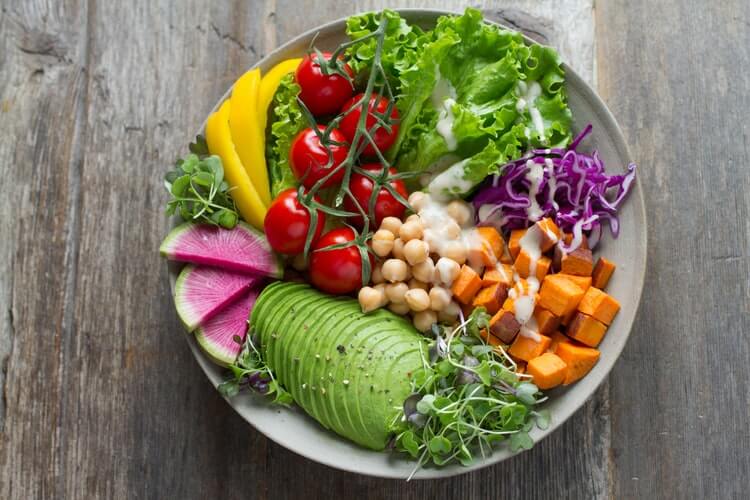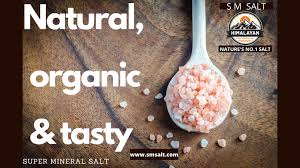
It is important to take care of your teeth. It can prevent many painful issues, such as tooth decay and gum disease. It is important that you only eat healthy foods. For instance, a diet rich in raw fruits and vegetables is beneficial for maintaining a healthy mouth and teeth. These types of foods massage your gums and clean your teeth by generating more saliva. Your mouth will be cleansed by the saliva.
For your child's good health and dental health, it is vital to eat lots and lots of fresh fruit and vegetables. Encourage your child to eat fresh fruits and vegetables. Participate in the cooking process. This could even be turned into a fun activity. When cooking, try to incorporate different colours into the food you serve. In addition, make sure to keep mealtimes set so that your children are eating on schedule. Besides, frequent snacking can lead to tooth decay, so choose healthy snacks such as cut-up fruits, cheese, and vegetables.

A well-balanced nutritional diet is the key to keeping your teeth healthy. Avoid foods that may cause tooth decay. Reduce your intake sugar and consume a lot dairy products like yogurt, cheese, milk and cheese. This will help your teeth stay strong and free of cavities. Consuming calcium-rich foods can help keep your bones healthy. Savouring crunchy foods can increase saliva production and wash away harmful bacteria.
Another important food for your child's teeth is cheese. Cheese can help fight cavities as well as stimulate saliva production. Some cheese ingredients may actually stick on your child's teeth to protect them against acidic decay. Low-fat dairy products are also rich in calcium and do not contain saturated fat which can cause tooth damage. It is important to make sure your child has a regular dentist visit. Regular checkups can prevent any serious decay and lessen the need to have invasive treatments.
Fruits and vegetables, along with nuts, are good for your teeth. Nuts and vegetables are rich in nutrients that can be beneficial to your teeth. Raw vegetables and fruits can be used to clean your teeth and prevent cavities. These are the most healthy foods for your teeth. You can also eat healthy foods to maintain a healthy smile. These are leafy green vegetables, carrots, and great sources of iron as well as calcium.

It is important to get enough water. Your child's oral health is dependent on water intake. It is important to hydrate your mouth and maintain the pH balance. It can help reduce the risk of tooth loss. Water is crucial for strong and healthy teeth. You can also talk to the dentist when you are in the office about the best foods and drinks for your child.
FAQ
Is Cardio Better Than Strength Training?
Both are equally good. For those who want to gain muscle quicker, cardio is a better choice.
Cardio burns a lot more calories per minute that strength training and is more effective at burning fat.
Strength training builds muscle mass, but it takes longer to achieve this goal than cardio.
Eggs are good for us.
The egg has all the nutrients the body requires. It also helps maintain strong bones, a healthy heart and lungs, and stable blood pressure.
Eggs are an excellent source of protein, vitamins A, B12, D, E, K, calcium, phosphorus, iron, zinc, copper, magnesium, selenium, and riboflavin.
The egg yolk contains high levels of cholesterol. The egg yolk does not contain saturated oil. Eggs are lower in saturated fat than other foods.
In addition, they are low in sodium and calories. They are also very versatile because you can cook them any way you want. They can be cooked in a variety of ways: poach, saute, bake, hard-boil or fry.
They are extremely nutritious and simple to prepare.
You should eat at least two whole eggs per day. You should eat eggs if you are allergic to them.
Our bodies need eggs to provide the essential nutrients they require. Consider adding eggs to your daily meal plan today.
Is it possible to drink alcohol while training?
Yes. Alcohol can increase energy expenditure, speed up healing time, and reduce soreness.
Alcohol also increases insulin sensitivity, making it easier to absorb glucose.
However, alcohol can cause dehydration, which can slow down your metabolism. It also reduces testosterone production, which may decrease muscle-building potential.
This is why women shouldn't have alcoholic drinks before exercising. Women who have consumed a lot of alcohol should wait at most 24 hours before working out.
Breastfeeding women should stay away from alcohol.
Men should have no more than one drink per day.
How To Build Muscles Fast?
It is important to eat healthy food and lift weights frequently in order to quickly build muscle.
When you're fresh and ready to do something, early morning is the best time for working out.
It is a good idea to do exercises like push-ups (pushes), bench presses (squats), and so on.
Use different weight training techniques and drink plenty water throughout the day.
What is a good schedule for a 7-day work out?
A seven-day exercise program should consist of three days per week of cardiovascular training (running, biking, swimming), two strength exercises (using free weights, weight machines), and one flexibility/core workout (yoga, Pilates). Each activity should be performed at least once each week. Maximum 45 minutes should be allotted for each session.
Cardiovascular Exercise: Running/Biking/Swimming
The goal is to get in at least 60 minutes of cardio activities per week. Try to do 75 minutes per semaine for the best results. Cardio exercise can improve blood flow and stimulate muscle development.
Strength Training
Cardio exercises target the heart, lungs and muscles. Strength training targets the muscles, tendons and bones. Strength training can help you burn calories even when you're not working out.
Flexibility and core workouts
Your whole body will be stronger if you have flexibility and core training. Both yoga as well as Pilates are great choices.
Statistics
- By John Thompson Take a whopping 38% off a set of PowerBlock Pros. (menshealth.com)
- 10 pounds in a month is likely during a lean bulking phase, especially for beginners. (muscleandstrength.com)
- Cardmembers earn 5% Back at Amazon.com with a Prime Credit Card. (amazon.com)
- The PRS enabled risk stratification for overall prostate cancer and lethal disease with a four-fold difference between men in the highest and lowest quartiles (HR, 4.32; 95% confidence interval [CI], 3.16-5.89). (pubmed.ncbi.nlm.nih.gov)
- Are You One of the 20% of Guys (mh.co.za)
External Links
How To
How can I exercise to burn fat?
Exercise can help you burn calories and increase your metabolism.
Exercise at a moderate intensity to safely lose weight.
These tips can help you to burn fat while training:
-
Cardio exercises include swimming, running or cycling.
-
Do 30 minutes of exercise three times a week.
-
If you want to lose more weight, add strength training to your routine.
-
Avoid intense workouts. It's possible to build muscle, but not lose it.
-
Keep hydrated during exercise. Water helps flush out toxins and keep your body properly hydrated.
-
After exercising, consume low-fat protein smoothies. Protein shakes repair muscles and increase energy.
-
You can eat smaller meals throughout the day so that you don't feel hungry in between meals.
-
Don't skip breakfast! Skipping breakfast can make you tired and sluggish.
-
Mental health is important. Stressful situations may slow down your metabolism.
-
Keep a positive attitude. Studies have shown that people who are convinced they are overweight gain more weight than those who feel they look attractive.
-
Get enough sleep. You will have a harder time losing weight if you do not get enough sleep.
-
Stay active. Make sure you get up and move every hour.
-
Maintain a healthy diet. You will feel fuller longer if you eat right.
-
Find relaxation techniques. Tenseness can cause stress hormones to break down muscle tissue.
A balanced diet provides all the nutrients necessary for growth and development.
Six small meals per day is better than three large meals. This allows your body time to digest what you've eaten.
For strong bones to be maintained, you need approximately 500mg of calcium per day. Calcium is available in dairy products like milk, yogurt, fortified soy beverages, orange juice, cereal, bread, and cereals.
Calcium is found in green leafy vegetables, beans, tofu, seeds, nuts, and cheese.
Your body needs vitamin D to absorb calcium. Vitamin D is found in eggs yolk, fatty fish and fortified foods.
Vitamin E plays an important role in skin health. Vitamin E is found in vegetable oils and wheat germ oil, as well as peanuts, almonds and sunflower seeds.
Your body needs zinc for normal immunity function and wound healing. Zinc can be found in seafood, legumes and meats.
Zinc deficiency can cause fatigue, loss of appetite, depression, and impaired immunity.
Sugar intake can lead to insulin resistance which causes blood glucose levels to rise. Insulin resistance leads to weight gain.
When there is a high level of free radicals, insulin resistance can develop. Free radicals refer to molecules that contain unpaired electrons. They can damage cell membranes and other body parts.
Free radicals come mainly from food additives, pesticides, herbicides, preservatives, smoking, air pollution, radiation, chemicals in cosmetics, lotions, and household cleaning supplies.
Free radical damage can lead cancer, heart disease or diabetes, arthritis, asthma, or other forms of aging.
Eating a well-balanced diet with antioxidants is the best way to prevent free radical damage. Antioxidants protect against oxidative damage.
Vitamin C can be found in citrus fruits. Beta carotene can be found in carrots. Sweet potatoes. Tomatoes. Carrots. Sweet potatoes. Spinach. Broccoli. Cantaloupe. Vitamin E is found in nuts. Olive oil, avocados.
Selenium, manganese (and zinc) are other antioxidant nutrients.
Selenium protects cells against oxidative damage from free radicals. Selenium is also found in Brazil nuts.
Copper protects the brain and eyes as well as the lungs and red blood cells. Copper is found in shellfishes, poultry, meat, organ meats, and other foods.
Manganese forms an essential part of bone structure. Manganese can also be found in oatmeal, brown rice, spinach and bananas.
Zinc is important for healthy growth, reproduction, and wound-healing. Zn is present in lean cuts of meat and white fish, as well as eggs.